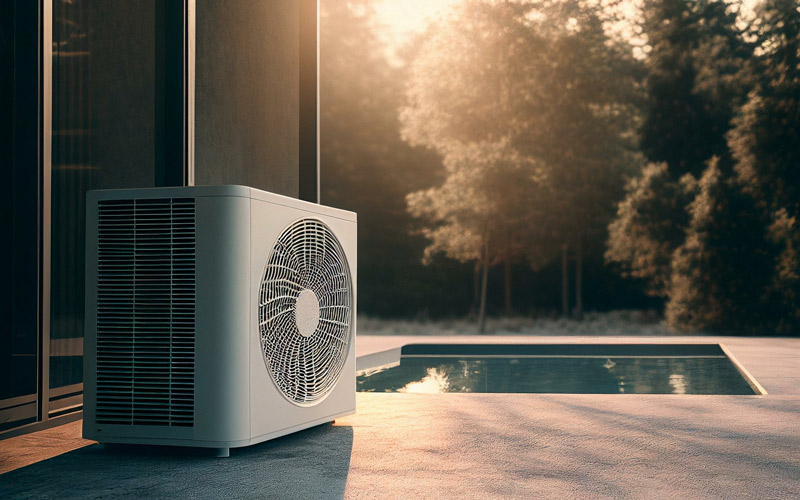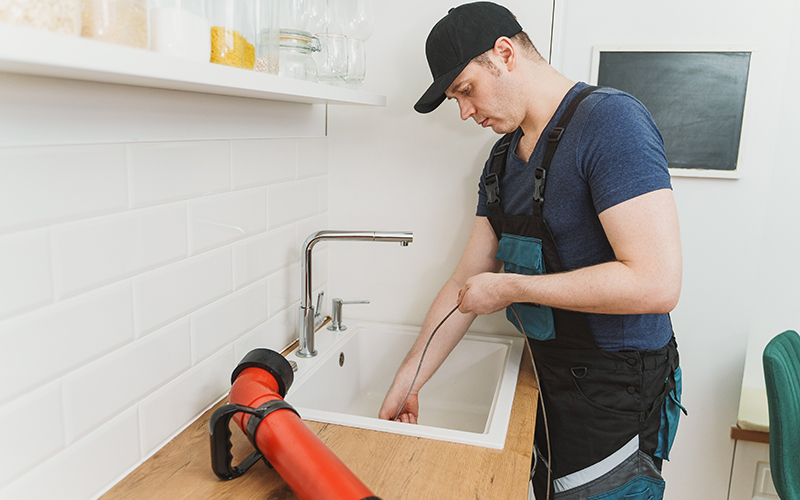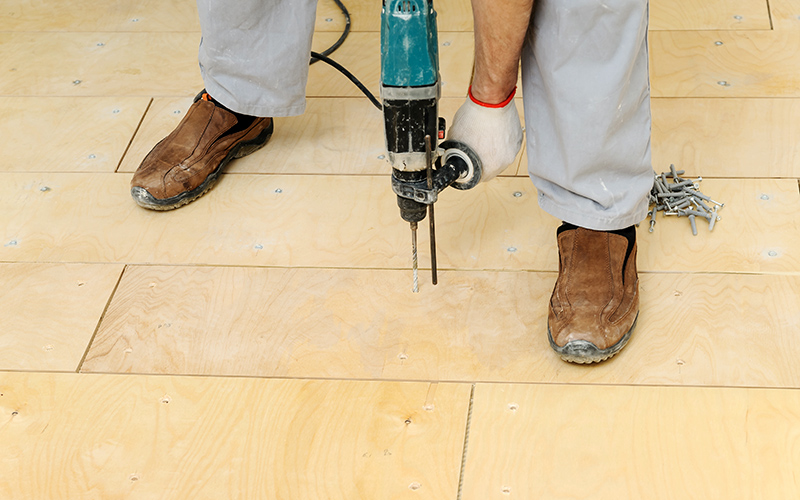One of the things that spring is often associated with is cleaning. This applies to your HVAC system as well. Here is why you need AC maintenance in spring.
AC Maintenance in Spring: Why It’s the Best Time
If you own and operate an air conditioner or HVAC system, spring is the best time to schedule cleaning and maintenance. For one thing, spring comes right before summer, so it makes sense to get a tune-up prior to the months when you’ll use the AC most. Failure to get AC maintenance in the spring could lead to a breakdown in the summer, which means you’ll have to suffer through unbearable heat.
Spring is also a great time for AC maintenance because of the weather. The temperature is warm enough to turn on the cooling system without the threat of freezing over. Plus, most HVAC companies and technicians open up their schedules during this time of the year.
Winter is not a good time for AC maintenance and repair. The cool temperatures can tamper with the oil in your AC unit, leading to malfunctions. Summer is also not a good time. This is when most HVAC companies and technicians have their schedules fully booked due to the high demand. As such, you might have a hard time getting an appointment.
The Importance of HVAC System Maintenance in Spring
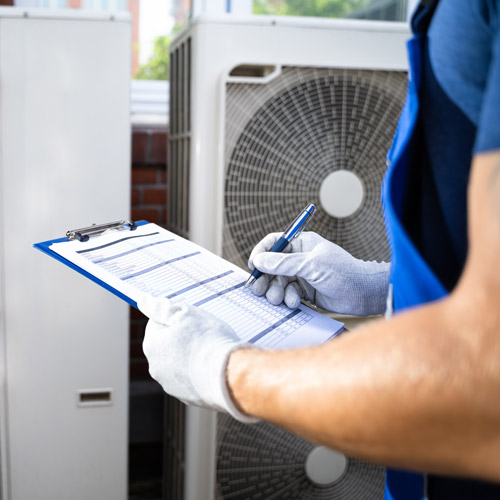
AC maintenance is an absolute must. As with most machines, your AC is not immune to filth, wear and tear, and malfunctions. Without proper and regular maintenance, your AC could stop working altogether. This will force you to purchase a new AC unit, which is considerably more expensive than preventive maintenance.
If you’re still a non-believer in AC maintenance, here are some reasons that may convince you otherwise.
Prevent Machine Breakdowns
Just like cars need periodic maintenance, AC units also require regular check-ups and cleaning. Your AC unit works hard to cool down your space, so it is vulnerable to machine breakdowns over time. In addition to use, other factors such as the weather, temperatures, and pollution can obstruct the optimal operation of your unit.
With AC maintenance in spring, you can prevent your unit from breaking down. It is better to anticipate and address a failure before it actually happens. In doing so, you can avoid the headaches associated with repairs or replacements and save money in the process, too. And, you know what they say, prevention is better than cure.
Save on Your Energy Bill
Did you know that air conditioners account for $29 billion in annual costs for homeowners in the United States? When you don’t maintain your AC unit, it tends to use more power to cool down a space.
Proper and regular AC maintenance ensures that your unit is working in the best possible way. Dirty filters and leaks in the system can significantly impede how your AC functions. These things will force your unit to use more energy, resulting in a higher utility bill.
Prolongs Usable Life
HVAC units are not cheap. Thus, if you want to make the most of this investment, you must carry out proper and regular maintenance. Maintenance helps keep breakdowns at bay, thereby extending the lifespan of your unit. If you don’t want to invite premature deterioration, make sure to schedule AC maintenance this springtime.
What to Include in Your Spring AC Maintenance Checklist
Maintenance is a general term that not many homeowners quite understand. What exactly do you need to do to perform AC maintenance in spring?
1. Clean Outside Condenser
First, you need to clean the outside condenser of your AC unit. Turn off the unit, remove the cover, and get rid of any debris in the way. After winter, you might find dead leaves and twigs blocking the condenser.
Next, take a soft brush and gently scrub the dirt off. You can use water to clean it, too. Just remember to exercise care because the condenser finds are very fragile. Too much pressure and the fins might bend.
2. Change Filters
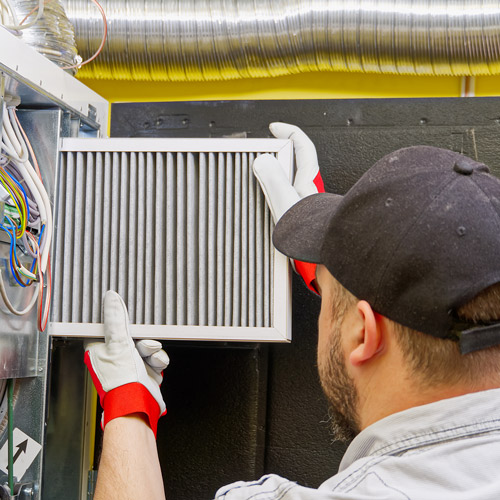
If you find that your AC unit isn’t cooling your space properly, there’s a good chance that you have dirty filters. The air passes through the filters to remove any dust particles, so they naturally get filthy over time.
For proper maintenance, make sure to clean your filters and remove any clogs. You can usually do this with just soap and water for reusable filters. If you have non-reusable filters, you will need to replace them.
3. Check Refrigerant Line
Your AC unit has two refrigerant lines. Check both of them to make sure they are in good shape. Look for any signs of wear and tear. You might also spot cracks. If your refrigerant lines aren’t in good condition, you will need to replace them. Otherwise, your unit will work less efficiently.
4. Ensure Thermostat Functionality
Your thermostat controls the temperature of the AC unit, and it is also subject to breaking down at times. Remember to check your thermostat to make sure it’s working properly.
To do this, turn the AC unit on and set your thermostat about 4 to 5 degrees below room temperature. Wait a few minutes for the unit to cool the space. After a while, if you don’t feel cool air blowing inside and everything else is working right, then you might have a problem with your thermostat. This will require professional attention.
5. Inspect Drainage Pipe
AC units can produce water deposits or moisture. Typically, the moisture flows into a drain pan. But, if there is a clog in the line or drainage pipe, the water can’t escape properly. When water accumulates, it can find its way back into the unit, which can lead to flooding.
6. Hire a Professional
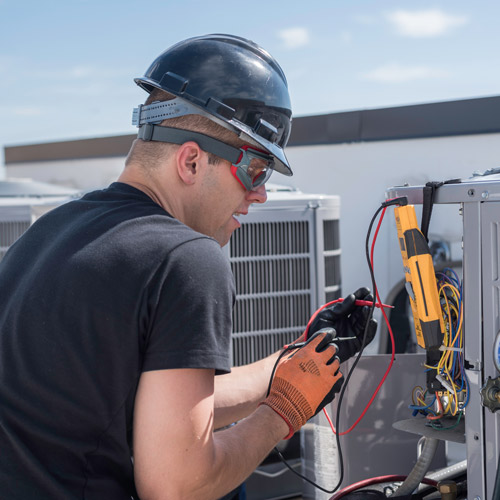
Not everyone has the knowledge, time, or resources to pull off proper maintenance. Attempting to do it yourself could lead to disastrous results. Thus, it is always better to hire a professional AC technician to do the job for you.
Professionals know what they are doing and have access to the right tools and equipment. In addition to performing maintenance, professional technicians can also identify long-term problems with your AC unit. Addressing these issues ahead of time can significantly reduce costs and prolong the life of your air conditioner.
Getting Back on Track
You don’t really use your AC unit in the fall and winter seasons, especially if you live in a colder area. Months of nonuse can bring all sorts of problems. As such, it is imperative that you perform AC maintenance in spring or hire a professional to do it for you.

